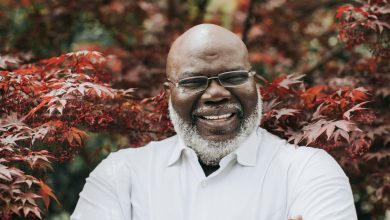Himalaya Rao-Potlapally Says Lessons Learned From Black Founders Matter Inaugural $10M Fund Will Help Create Long-Term Solutions For Others


Building on the work she did at six previous funds, Himalaya Rao-Potlapally is now leading one with a focus on Black entrepreneurship.
Black Founders Matter Fund
Founded in 2019, the Black Founders Matter Fund is an early-stage venture capital firm dedicated to investing in Black and diverse founders building solutions across a variety of sectors, including health, wealth, and economic mobility. The fund gained traction one year later following the racial justice movement caused by the murder of George Floyd. At the time, the Black Founders Matter Fund invested in A Kids Company About (founded by Jelani Memory), which launched a series of books co-authored by experts to help children navigate challenging topics such as autism, trauma, and racism.
“It was a really cool business model, a really cool impactful model, and so we had invested in them. And then post-George Floyd’s murder, that book [“A Kids Book About Racism”] actually took off as one of the things that people were purchasing as part of some people’s awakening into race in this country,” Rao-Potlapally, managing director of Black Founders Matter Fund, told AFROTECH™. “Because that took off, then our SPV did really, really well. So, that actually started to catalyze movement into the fund because people saw that we could pick really great companies that were having an impact, but also had an economical gain. And so that actually is what catalyzed our fundraise in 2020 into the main fund.”
Fund I
Black Founders Matter Fund began raising capital for its flagship fund in 2021 and fully deployed its investments by 2025. According to information shared with AFROTECH™, it raised $10 million. Portfolio companies also include HUED, a Black woman-owned healthcare technology startup aiming to improve patient-physician experiences through culturally competent providers, as AFROTECH™ previously reported. In 2021, the fund also was the first institutional investor in athletic footwear brand Saysh, co-founded by Olympian Allyson Felix, her brother Wes Felix, and Darren Breedveld. Black Founders Matter Fund then stepped in during a time when Saysh faced funding challenges, helping to support and catalyze its funding round. As a result, one of the fund’s limited partners, Oregon Sports Angels, secured equity not only through the fund but also through a Special Purpose Vehicle, Rao-Potlapally noted.
“One of the things I think that piqued our interest was how easy it is for us to overlook the idea that things that are made for women are just things that have been made for men and then just marketed differently, sized differently for women,” she said. “But one of the things that Allyson was doing from the ground up was, ‘How do we create a woman’s shoe that is designed around a woman’s foot?’ …So I think that’s really what piqued our interest in the beginning, and then being able to see how the team worked together, and to be able to see what intentionality they had around the design and production process is really what enabled us to get across the diligence line with them.”
Rao-Potlapally later added, “We’ve found that they are doing really well and have stuck to their core mission.”
FUND II
In reflection, all the portfolio companies from Fund I were profitable, adding validity to Rao-Potlapally’s conviction that Black founders can thrive, even when building with fewer resources than their counterparts. Through a second fund, Black Founders Matter Fund plans to double down on this thesis as well as support founders in the broader community and in the longer term. This will include exploring ways to help them accelerate sustainable growth, which can avoid centralized corporate power and promote local ownership.
“How can we support more businesses to reach sustainable profitability over a longer period of time to be able to employ a larger number of employees so that they can meet the criteria to be able to think about employee or community ownership transition as one of their succession plans?” she explained. “They can still do a single-point sale from one owner to another owner. They can also, if they want, sell to a corporation. There’s a number of other avenues of merging with other smaller companies, doing other things. But I think the base of what we found is in order to create the most optionality for Black founders, we need to be able to work on sustainable profitability, smoothing out the revenue from Q1 to Q4 so that there’s an ability for and capacity to hire more internally.”
Black Founders Matter Fund will also be looking into integrated capital fund models that include a mixture of revenue-based financing loans, grants, and some equity as it will be “less extractive” for portfolio companies. This will help make it easier for founders to retain ownership to then pass on to others in the Black community.




